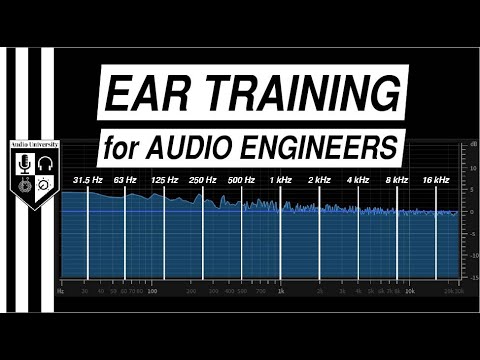Unlock Your Sound Potential: Audio Engineer Job Description and Salary

Audio Engineer Job Description Template
Audio Engineer, also known as a sound engineer or sound technician, is a professional responsible for the technical aspects of sound during the production of music, film, television, or live events. They work closely with musicians, producers, directors, and other members of the production team to ensure high-quality audio. One of the main responsibilities of an audio engineer is to set up and operate sound equipment, including microphones, mixing consoles, amplifiers, and speakers. They are responsible for adjusting sound levels, equalization, and audio effects to achieve the desired sound quality. They also handle the recording, editing, and mixing of audio tracks, using various software and equipment. Another important aspect of an audio engineer’s job is troubleshooting and problem-solving. They must be able to identify and resolve technical issues with sound equipment quickly and efficiently. This requires a strong knowledge of audio systems and a good understanding of acoustics. In addition to technical skills, an audio engineer must also have a good ear for music and sound. They need to be able to differentiate between different frequencies and tones and have a sense of what sounds good. They should also have excellent communication and teamwork skills, as they often collaborate with other professionals in the industry. Overall, an audio engineer plays a critical role in the production process, ensuring that the sound quality meets the highest standards. Their expertise and technical knowledge are essential for creating a professional and immersive audio experience. Attention to detail and technical proficiency are two crucial qualities that an audio engineer must possess to excel in their field.Audio Engineer Responsibilities
Audio Engineer Requirements
How Much Does A Audio Engineer Make?
Audio Engineer Salary
| Job Title | Median Annual Salary |
|---|---|
| Junior Audio Engineer | $40,000 |
| Audio Engineer | $60,000 |
| Senior Audio Engineer | $80,000 |
An audio engineer is responsible for recording, mixing, and editing audio content. They work in various industries such as music production, film, television, and broadcasting. The above table provides an overview of the median annual salaries for different levels of audio engineers. Junior audio engineers typically earn around $40,000 per year, while experienced audio engineers can earn up to $80,000 or more. Salary can vary depending on factors such as location, experience, and industry. It’s important to note that these figures are approximate and can vary from company to company.
Audio Engineer Salaries by Country
Top Paying Countries for Audio Engineer
| Country | Average Salary (USD) |
|---|---|
| United States | 70,000 |
| Switzerland | 65,000 |
| Australia | 60,000 |
| United Kingdom | 55,000 |
| Canada | 50,000 |
An audio engineer’s salary can vary depending on the country they work in. The table above lists the top paying countries for audio engineers based on average salaries in USD. It is important to note that these figures are approximate and can vary based on factors such as experience, qualifications, and the specific industry. The United States offers the highest average salary for audio engineers at $70,000, followed by Switzerland at $65,000. Australia, the United Kingdom, and Canada also offer competitive salaries ranging from $50,000 to $60,000. Keep in mind that these figures are subject to change and may not reflect the current market conditions.
A video on the topic Audio Engineer
Video Source : Audio UniversityInterview Questions for Audio Engineer
1. Can you briefly explain your role as an audio engineer?
As an audio engineer, my role is to work with sound recording, editing, mixing, and mastering. I am responsible for ensuring that the audio quality meets the desired standards and that the final product sounds clear and professional.
2. What technical skills are essential for an audio engineer?
Some essential technical skills for an audio engineer include proficiency in operating audio equipment, knowledge of digital audio workstations (DAWs) such as Pro Tools or Logic Pro, understanding of signal flow, audio editing and mixing techniques, and a good ear for sound quality and balance.
3. How do you approach a recording session?
When approaching a recording session, I first discuss the project requirements with the client or the artist. I then set up the audio equipment, test the sound levels, and ensure that all the necessary instruments and microphones are properly connected. During the session, I monitor the sound quality, make adjustments as needed, and provide guidance to the performers if necessary.
4. What are some common challenges you face as an audio engineer?
Some common challenges I face as an audio engineer include dealing with technical issues such as equipment malfunctions or software glitches, managing time constraints during recording sessions, and achieving the desired sound in challenging acoustic environments. Additionally, working with different artists and their varying preferences can also be a challenge.
5. How do you ensure the best sound quality in a mix?
To ensure the best sound quality in a mix, I pay attention to the individual elements of the mix, such as the balance between instruments and vocals, the clarity of each audio track, and the overall dynamics. I use various techniques like equalization, compression, and reverb to enhance the sound and create a cohesive and polished mix.
6. Can you explain the process of mastering audio?
Mastering audio is the final step in the production process, where the final mix is prepared for distribution. The process involves fine-tuning the overall balance and tonal quality of the mix, applying compression and limiting to control the dynamics, and ensuring that the audio meets the technical requirements for different playback platforms.
7. How do you stay updated with the latest audio technology and trends?
I stay updated with the latest audio technology and trends by regularly reading industry publications, attending conferences and workshops, and actively participating in online forums and communities. I also experiment with new equipment and software to stay familiar with the latest advancements in audio technology.
8. How do you handle feedback and criticism from clients or artists?
I believe that feedback and criticism are important for personal and professional growth. When receiving feedback, I listen attentively, take notes, and ask clarifying questions if needed. I take constructive criticism positively and use it as an opportunity to improve my work and meet the client’s expectations.
9. Can you share an example of a project where you had to troubleshoot technical issues?
During a recording session, one of the microphones suddenly stopped working. I quickly checked the cable connections and tried swapping the microphone, but the issue persisted. I then suspected that the problem might be with the audio interface. I troubleshooted the interface and found that one of the channels had failed. I quickly switched to a backup interface, ensuring that the recording session continued without any further interruptions.
10. What do you enjoy most about being an audio engineer?
What I enjoy most about being an audio engineer is the opportunity to work with different artists, genres, and styles of music. I love the creative process of shaping sound and bringing a vision to life. Seeing the final product and knowing that I played a part in creating it is incredibly rewarding.






